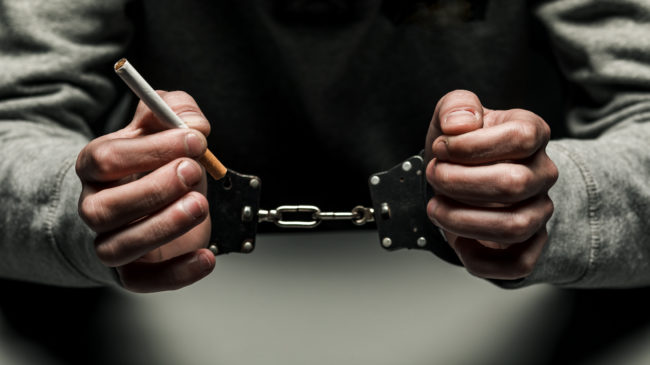Thanks to the work of protesters and activists, states are feverishly re-examining dangerous police tactics, the harassment of black Americans, and disparate outcomes in the criminal justice system.
There is optimism that overdue and much-needed reforms will finally win the day. With this background of hope, it’s dispiriting to see California considering adding to its maze of laws and regulations that disproportionately target and criminalize black residents.
Senate Bill 793, for example, would ban the sale of all flavored tobacco products. The bill aims to protect young people from tobacco, but youth smoking rates are already at a record low. One of the most troubling aspects of the bill is its ban on menthol cigarettes.
Around 80 percent of black smokers use menthols. Prohibition advocates argue this suggests that a ban would be a cost-free way to narrow racial disparities in health outcomes since the adult black smoking rate in California is 17 percent, and for whites, it’s 11.8 percent. But black youth are, in fact, significantly less likely to use a tobacco product than their white peers. And since menthol and nonmenthol cigarettes are equally dangerous, it’s nonsensical to continue to allow cigarettes mostly used by whites but to criminalize the one primarily used by African Americans.
Beyond a basic sense of unfairness, there’s the obvious point that criminalizing the sale of an addictive and profitable product will lead to the over-policing of black neighborhoods—not to protect them—but to target them for these types of petty crimes.
California is no stranger to recent police abuse of minority citizens related to enforcement of tobacco laws. In April, a Rancho Cordova police officer was filmed landing multiple punches on 14-year old Elijah Tufono because he purchased a swisher cigar. On May 27, La Mesa police manhandled Amaurie Johnson after he was wrongly suspected of smoking on a trolley platform.
Many will also remember the case of Eric Garner, who was killed by New York City police in 2014 for selling loose cigarettes. And it should also be noted that when George Floyd allegedly handed over a counterfeit $20 bill to Cup Foods in Minneapolis—leading the store to call the police— he was trying to buy cigarettes from a shop known as the best place in town to get menthols.
To avoid the problems of criminalization, supporters of SB793 claim smoking menthols won’t be a crime but their sale will be, hardly a reassuring prospect. Drinking alcohol wasn’t illegal in the 1920s, the “manufacture, sale and transportation of intoxicating liquors” was. How’d that work out? How many packs will be enough for police to say they stopped someone because they suspected they were selling menthols?
It is hopelessly naïve for California lawmakers to suggest the state can achieve all the alleged benefits of this law with none of the dangers of it actually being enforced. It’s these concerns and others that prompted civil rights groups, including the American Civil Liberties Union, to write to Congress in February, warning that a federal ban on menthol cigarettes could “trigger criminal penalties, prioritizing criminalization over public health and harm reduction.”
The public health case for banning menthols rather than regular cigarettes is also remarkably weak. Using data from the federal National Survey on Drug Use and Health and industry distribution figures, a Reason Foundation study found that from 2008 to 2018, states with a bigger proportion of menthol cigarette distribution relative to nonmenthol use actually had lower rates of child smoking, on average.
Likewise, Canada’s experiment in menthol prohibition appears to be failing to reduce smoking. A study published by the National Bureau of Economic Research found “menthol bans significantly increased nonmenthol cigarette smoking among youths, resulting in no overall net change in youth smoking rates.”
California considers itself a leader in criminal justice reforms. But if the state dives into this prohibition experiment there will be no excuse for rationalizing disparate outcomes that hurt the black community. The ban on menthols is laser targeted at black Californians and state leaders know that.
A version of this column originally appeared in the Orange County Register.

